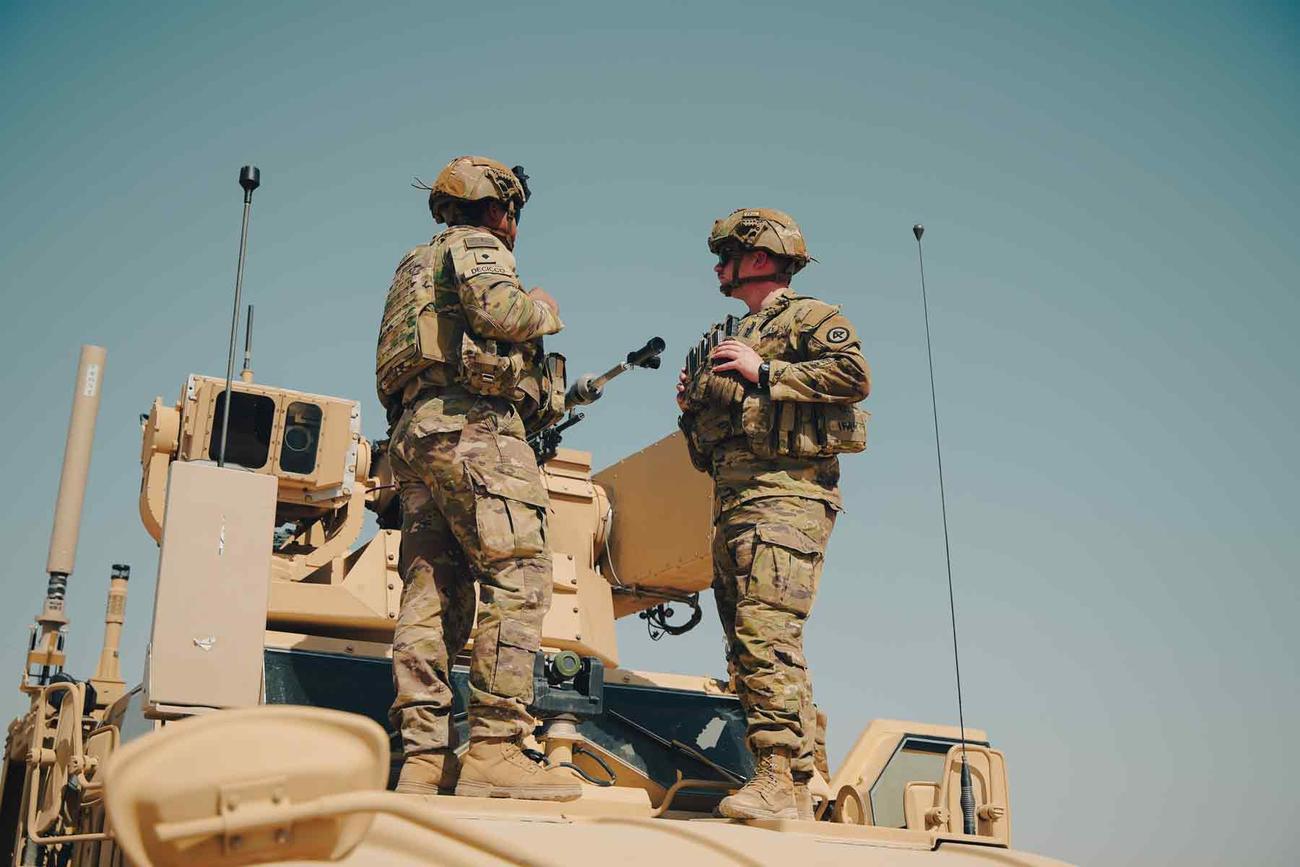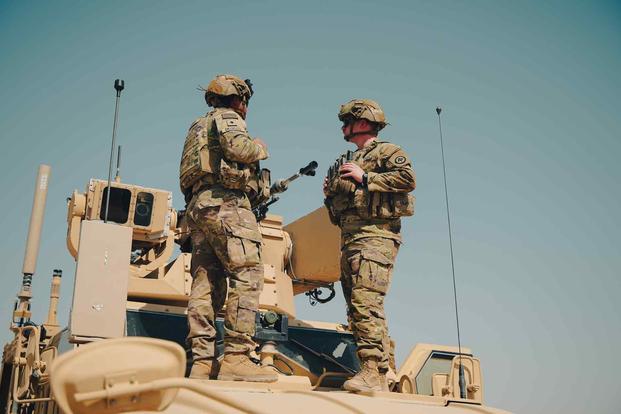

Eight U.S. service members were treated for traumatic brain injury and smoke inhalation after a one-way drone attack in Syria over the weekend, a Pentagon spokesperson confirmed Tuesday.
Of those eight, three service members have already returned to duty, and the rest are still under medical observation, Pentagon spokesperson Maj. Gen. Patrick Ryder told reporters at a briefing.
Ryder stressed that “none of the injuries are life-threatening,” but provided no other details on the condition of the service members or the severity of the brain injuries.
Read Next: Soldiers Hit with More Problems Accessing Education Benefits Amid Fall Enrollment Deadlines
The injuries were caused by a drone that struck Saturday at the Rumalyn Landing Zone in northeast Syria. There are roughly 900 U.S. troops in Syria as part of an international coalition working to keep remnants of the Islamic State terrorist group at bay.
Ryder previously told reporters Monday that “several” troops were transported to an undisclosed separate location to treat minor injuries after Saturday’s attack, but did not specify exactly how many until Tuesday.
The drone strike in Syria is the second time in recent weeks that U.S. troops in the Middle East have been injured. While there had been a lull in recent months, Iranian-backed militias launched a spate of attacks against U.S. forces in the region after Israel began its military campaign in Gaza in response to Hamas’ brutal Oct. 7 massacre.
Ryder did not attribute Saturday’s attack to a specific group, but said officials believe it was carried out by an Iranian-backed militia.
The renewed targeting of U.S. service members in the region comes as the United States and Israel brace for a threatened Iranian attack on Israel in retaliation for Israel’s recent strikes that killed two top Iranian-backed militia leaders in Iran and Lebanon.
In an effort to deter an attack and prepare to defend Israel if necessary, the U.S. military has bolstered its forces in the region.
Earlier this month, the Pentagon announced the USS Abraham Lincoln carrier strike group was heading to the region to replace the USS Theodore Roosevelt strike group. On Sunday, the Pentagon said in a statement that Defense Secretary Lloyd Austin ordered the Lincoln to “accelerate” its transit to the Middle East, though it is unclear what that means and Ryder declined several times Tuesday to elaborate.
In the same statement Sunday, the Pentagon also announced that Austin ordered the USS Georgia guided missile submarine to the Central Command region, a rare public announcement of a U.S. submarine movement.
On Monday, the White House told reporters that Iran’s retaliation could come as soon as this week. Asked about the White House assessment Tuesday, Ryder said that an attack this week is “certainly possible.”
Related: As Tensions Simmer in the Middle East, Pentagon Redirects Carrier Strike Group to the Area
